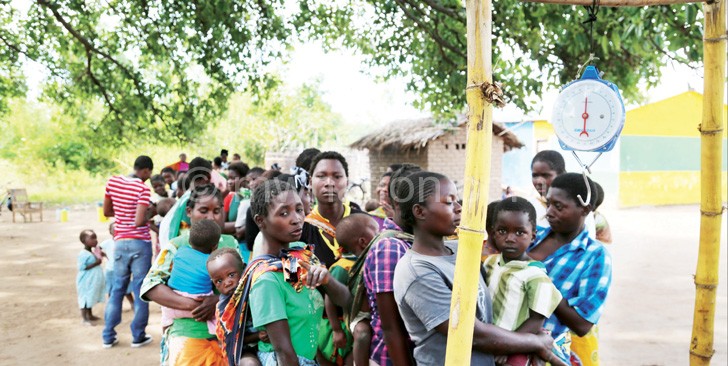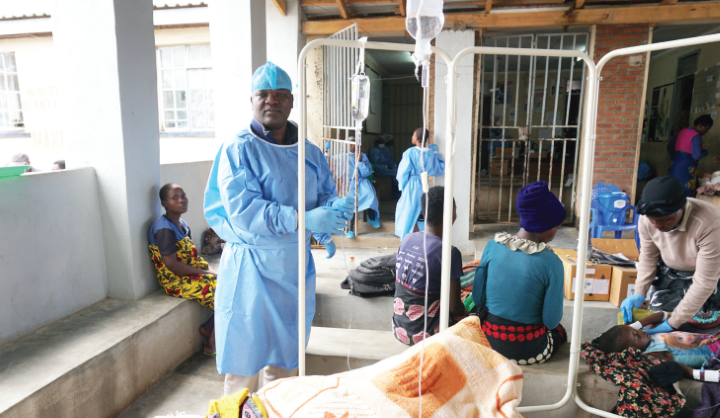Is safe motherhood achievable in Malawi?
They trekked from far and wide to participate and render their total support to a Campaign for Accelerated Reduction in Maternal and Neonatal Mortality Action (Carmma).
That was in August 2009 and Mchinji was the setting where the then coordinator for Presidential Initiative on Maternal Child Health and Safe Motherhood former president Joyce Banda led the glamorous launch of the campaign.

Men, women and children chanted specially-composed songs to make a poignant point on the need to remove utilisation of maternal and neonatal healthcare services.
At the event, a series of action messages were articulated that summarised key programmatic priorities from the initiative.
The messages highlighted the most critical interventions for reducing maternal mortality and morbidity and the range of barriers (economic, legal, social, and cultural) that women face in accessing high-quality maternal health care.
Each of the action messages was solidly grounded in research and country-level experiences and were directed at changing the political environment to support women’s health and empowerment, while other action messages related to health services and education.
Experts have long argued that maternal deaths are rooted in women’s powerlessness and their unequal access to employment, finances, education, basic health-care and other resources.
These challenges set the stage for poor maternal health even before a woman becomes pregnant and can worsen her health when pregnancy and childbearing begin.
Hence, they argue legal reforms and community mobilisation are essential for empowering women to understand, articulate and demand their health needs.
Health rights activists and civic education providers relentlessly call for the inclusion of safe motherhood pragrammes in all national development plans and policies in recognition of the enormous cost of a woman’s death and disability to health systems, labour force, communities and families.
They recommended that additional resources be allocated for safe motherhood and that those resources be invested in the most cost-effective interventions.
And as if heeding the call, former president the late Bingu wa Mutharika set up the Presidential Initiative on Maternal Child Health and Safe Motherhood in 2012 to demonstrate political will and commitment of the highest office and speed up reduction of maternal and neonatal morbidity and mortality rates in the country.
But four years down line, do Malawians have anything to show for that commitment?
Have we managed to improve the uptake of maternal and neonatal healthcare services? Have we managed to reduce maternal and neonatal-related deaths?
The 2013 Carmma report says Malawi managed to reduce its maternal mortality ratios significantly from 675 per 100 000 live births to 460 per 100 000 live births through the interventions that were championed by this initiative.
Currently, the country registers 574 maternal deaths per 100 000 live births.
National coordinator for White Ribbon Alliance for Safe Motherhood-Malawi (Wrasm) Nancy Kamwendo thinks there are many challenges that frustrate efforts by government and its development partners to make safe motherhood a reality.
Kamwendo, among others, cites poor working conditions under which majority of midwives render their services as the biggest challenge in the health sector.
“This is one of the stumbling blocks towards achieving zero maternal and neonatal-related death. Majority of the midwives have passion for serving and saving lives of the mother and her child at birth, but their desire to provide the best healthcare service possible is usually frustrated by lack of necessary equipment,” she explains.
“Regrettably, our society does not seem to appreciate this. It will always throw its slurs on the nurse or midwife when life is lost in the labour ward without putting into consideration the conditions under which that midwife is working,” says Kamwendo.
Kamwendo says to allay unfair allegations being targeted at midwives, Wrasm has partnered with National Initiative for Civic Education (Nice) Trust so that Malawians are provided with correct information on what stands in the way to achieve safe motherhood.
The two organisations kick-started their working relationship with a safe motherhood sensitisation public rally at Chinsapo in Lilongwe last week (Thursday).
Nice district civic education officer (Lilongwe Urban) Hajira Ali says civic education has a critical role to the achievement of safe motherhood.
Ali emphasises that, being a nation rich in cultures, beliefs and customs that can prevent women from understanding the importance of health services, and from seeking them, it is imperative that Nice should play its part in providing civic education to reverse the trend.
“We do appreciate that the most critical intervention for safe motherhood is to ensure that a health worker with midwifery skills is present at every birth, and transportation to a health facility is available in case of an emergency.
“However, this will all be in vain if people are not empowered with correct information. Hence, our partnership with Wrasm will help seal the information gap that forms part of the challenges towards improving uptake of maternal and neonatal health services,” she narrates.
Ali further emphasises that the partnership will work towards pressing authorities to ensure that a sufficient number of health workers are trained and provided with essential supplies and equipment, especially in poor and rural communities. n





